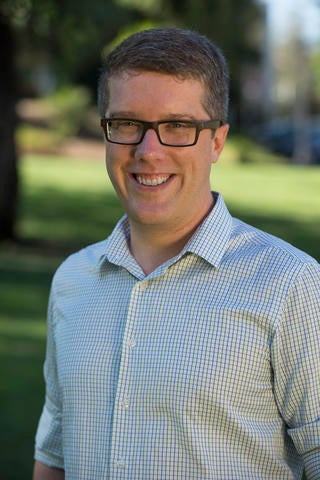Matthew P. Conley, an assistant professor of chemistry, has received a three-year grant of $500,000 from the U.S. Department of Energy in support of fundamental research his lab will perform to generate catalysts on surfaces to activate unreactive bonds.
A catalyst is a substance that operates by reducing the energy input for a chemical reaction by opening new reaction pathways that were inaccessible in the catalyst’s absence. Commodity plastics, such as polyethylene and polypropylene, are made of unreactive carbon-hydrogen and carbon-carbon bonds, which makes these materials ubiquitous and essentially indestructible.
“This project designs reactive organometallic sites on surfaces to activate carbon-hydrogen bonds and rearrange carbon-carbon bonds, in efforts to take waste plastics and to catalytically upgrade into new materials or downgrade to, hopefully, useful chemicals,” said Conley, who joined the UCR faculty in 2015.
Conley explained that, from a practical perspective, any remediation of plastic waste into something useful is beneficial.
“This, however, is a long-term goal that will need several chemical and engineering solutions beyond the scope of this award,” he said. “This award focuses on fundamental reaction steps needed to design new catalysts for several of the challenging reactions associated with plastics’ upcycling or downcycling.”
According to Conley, the research will result in new methodologies to activate unreactive bonds while using less energy than current state-of-the-art catalysts — a major challenge in chemistry and chemical engineering.
“If we discover a surface site that is capable of ‘chewing up’ hydrocarbon plastics to make molecules useful for other applications that would be great, but, admittedly, this is a long way off,” he said. “If we can determine design metrics to control carbon-hydrogen bond activation on surfaces using a bottom-up molecular strategy it would be the first step on the long journey for plastics remediation.”
The grant, which began earlier this month, will support a graduate student for three years and a postdoctoral researcher in the second and third years of the grant.
